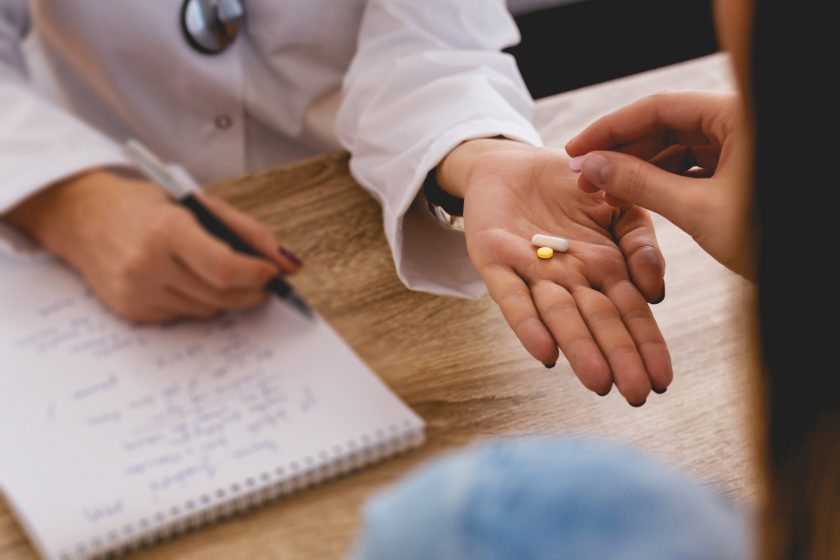Your clothes sizes may shrink when you lose weight...Unfortunately, so do your boobs. Even when…
Understanding Antidepressant Weight Gain and How to Lose It
August 2, 2018Tags: antidepressant weight, weight loss

Many of those who have found emotional stability through anti-depressants will also find a few pounds along the way. While weight gain is not a recognized side effect of all anti-depressant medication, 25% of people taking anti-depressants will experience some weight gain.
Having some insight into what you can do to change this can drop the unexpected pounds. If you are underweight or facing any additional health-related issues, be sure to talk to a doctor first before undertaking any weight loss methods.
Read This First
Let’s put aside the weight gain for one quick disclaimer: If you feel happy with your dosage and prescription choice, stick with the medication as prescribed. If you feel your prescription is leaving something to be desired, stick with your prescribed dosage, but talk to your doctor about your concerns.
Once you feel that you’ve made the adjustments necessary to tackle your mental health concerns, you can start focusing on working on the extra poundage. Remember, the brain controls the body.
Remember to keep your priorities in order before addressing weight-gain. There are far worse side effects caused by other medications. For further reading about this topic, check out The River Source.
Relax, you’ve got this!
Antidepressants and Weight Gain: Your Plan of Attack
The first thing to realize about food is just how much of an effect it can have on our experience of the world. Food can mean friends and good times or loneliness and comfort depending on how we interact with it.
Eating triggers our parasympathetic nervous systems which switch our bodies from the stress-inducing sympathetic response system to a more relaxed and comfortable feeling.
We may have grown accustomed to trying to regulate the feelings associated with chemical imbalance before starting antidepressant therapy. This, however, is no longer the case. Any weight gain associated with our new prescription therapy can be easily lost with a healthy diet and new lifestyle changes.
Because we no longer need food to regulate the way we feel, we can start using it as a means of giving our bodies the nutrients it needs.
Exercise: That Little Extra Push
It’s important to remember that the most important choices you make will involve what foods you choose to put in your body. Exercise is an important component of health but it’s critical that you don’t give exercise more value than it deserves in weight loss.
While exercise can boost your metabolism, that extra burn can make you feel more hungry. Be mindful to stick to your diet despite any added cravings you experience.
“But I worked out today” just doesn’t cut it when it comes to extra calories. The likelihood that your added snack or larger portion will outweigh your workout burn is high.
To put it simply, a workout that burns 300 calories but allows a dieter to justify adding 500 calories in snacks, sports drinks, or larger portions is a disservice. Keep your workouts frequent, but don’t allow your workout victories to counteract your dieting efforts.
Your New Lifestyle
Moving forward with new found strength and stability you can make the lifestyle changes necessary to counteract any side effects you may be experiencing. Focus on creating healthy changes, focusing on whole foods, and practicing self-care.
You’ve already taken the steps necessary to make your mental health a priority, you’ve got this! For more great ideas on how you can jumpstart your weight loss journey, check out more great articles to help you on your journey to your ideal shape.